Rat Control of Madison
Welcome to Rat Control of Madison! We are Wisconsin rodent control specialists. Our specialty is rat and mouse control. Our special 32-point process is the single most effective method in the country for permanently solving rodent problems inside houses and buildings. We are not a typical pest control Madison rodent exterminator company that treats rodents in a similar way to insects, with repeated monthly or quarterly poison treatments. That's a never-ending process. We solve the problem ONCE, and PERMANENTLY, by thoroughly inspecting every component of your building and completely sealing shut all access points, to 100% rodent-proof your house. We physically trap and remove all rats or mice, a process that is completely effective once all access has been closed. The problem is soved forever, usually in a week or less. Click on our Madison Prices page to find out more about our prices for rat control work. Or give us a call any time to schedule an appointment, usually within the next day. We look forward to hearing from you.
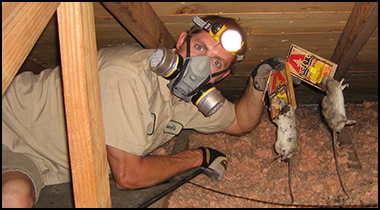
Madison Rat Trapping

Rodent-Proofing Repairs
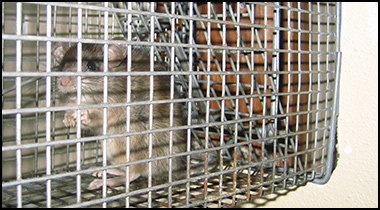
Humane Exclusion Options
Call 24/7 to discuss your rat problem.
Same-day or next-day appointments: 608-403-4381
32-point inspection of your property.
Written estimates for rat project.
Fully Wisconsin licensed and insured.
Rat-proofing repairs with steel.
100% of rodents trapped and removed.
Chewed wire and damage repair services.
Rat dropping cleanup and sanitation services.
Poison-free rodent control methods.
Our Service Range - 608-403-4381
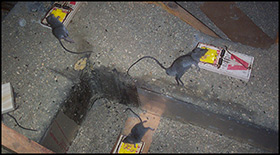
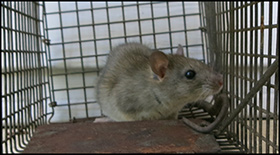
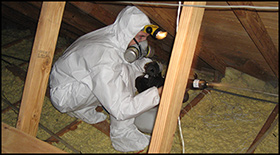
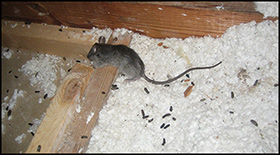
Rats chew everything, from plants and animals to wood, wiring and concrete. You would think maybe it's their large appetites, but think of it logically, they are very tiny creatures averaging around 1.2 pounds or so, how much could they possibly consume? Although, they do need to eat at least 15 times for the day. Their constant need to chew is not a result of having a big appetite, it's because of their anatomy, the anatomy of their teeth really.
The anatomy of rats' teeth are twelve molars and four incisors. The twelve molars are the rear-most teeth in their mouths, three on each side of the jaw to the top and bottom. These are never replaced and stay with the rat during its lifetime. The four incisors are the front-most teeth, with two at the top and two at the bottom. These incisors are open-rooted which means that they continually grow throughout the lifetime of the rat and they are the reasons why rats continually need to chew, well gnaw really.
Contrary to belief, the top incisors are shorter and thicker than the bottom incisors. The top incisors measure approximately 4mm in length and 1.5mm wide while the lower incisors measure approximately 7mm in length and 1.2 mm wide, with the upper incisors having a more yellowish pigmented color than the lower incisors. Within 8 to 10 days after birth, the incisors erupt out of the rat's mouth, the upper incisors growing at an average rate of 2.2mm per week while the lower incisors grow at an average rate of 2.8mm per week. After 40 to 50 days, new teeth growth is generated so the rats' incisors can never really suffer from cavities for very long.
Rats have very powerful gnawing abilities because of the attachment points of the muscles responsible for the upward and downward movement of the jaw, which are located far forward on their noses. As a result, gnawing becomes very forceful and effective and because one of the jaw muscles run through the eye sockets located behind the eyeballs, rats' eyes literally boggle, or vibrate in an out, while they chew. The ability of being able to chew through hard substances such as wire, concrete and wood is because of the enamel covering their incisors. This enamel is harder than iron, copper or even platinum.
The reason why rats chew through wire is because of its hard, outer coating and the hard texture of wire itself. Continuous gnawing is important for rats because of the growth rate of their incisors. Gnawing helps to control their incisors, because, if not controlled, their incisors can grow at an eighty-six-degree angle, making it simply impossible for them to eat or even close their mouth. However, the growth rate of the incisors depends on different circumstances. For instance, if the incisors are worn down quickly, this would increase the growth rate and if one incisor is shortened, it would grow faster than the others. Rats would gnaw on anything that is not harder than their own teeth.

